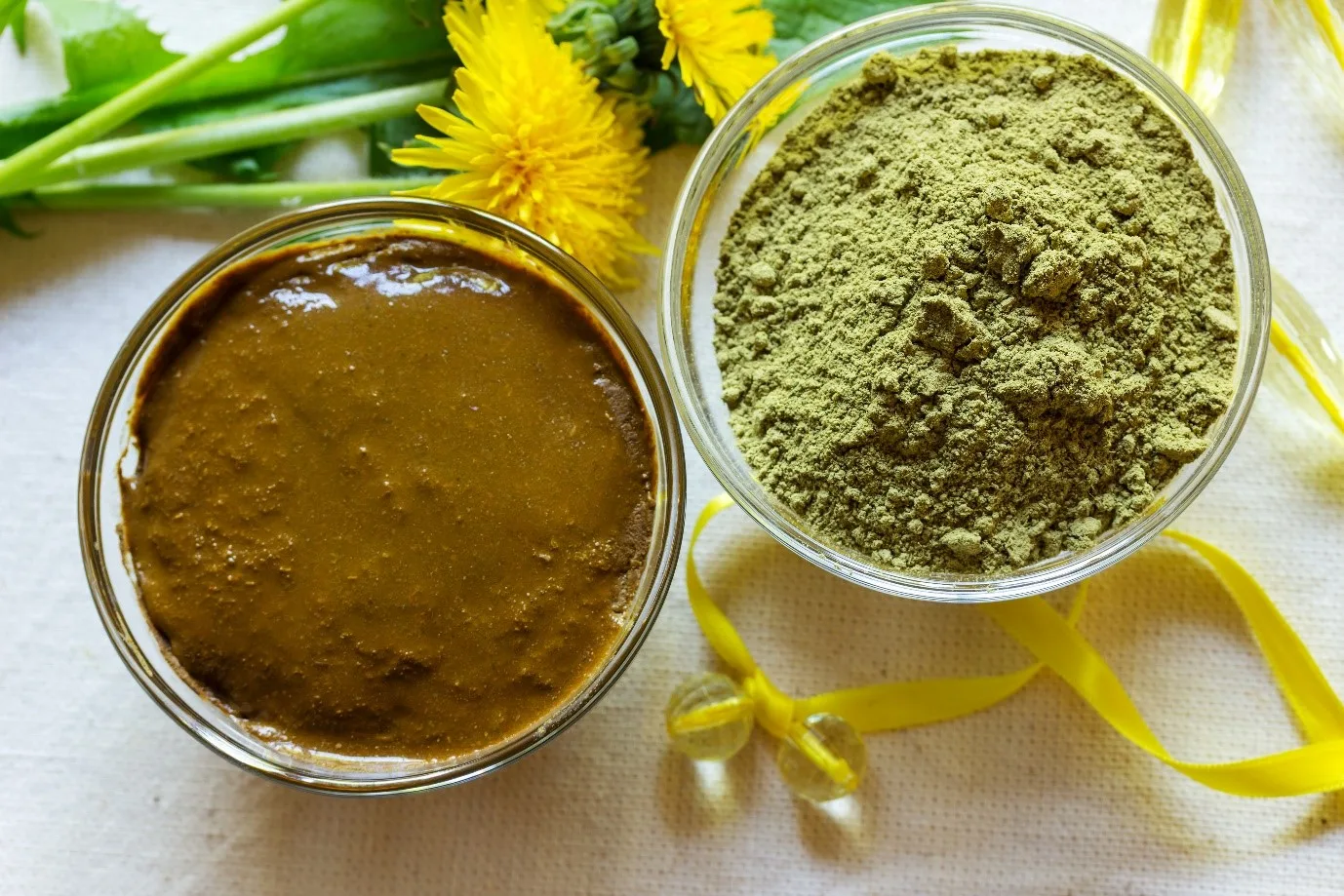HENNA FOR DANDRUFF
You might have used Henna to colour your hair, but did you know it can be used for dandruff and hair growth?

Henna has a special place in most cultures across North Africa and Asia. It is used for rituals, celebrations and even in traditional medicines to cure headaches. It is a dye prepared from the plant Lawsonia Inermis and is one of the oldest dyes known to humans. Its long-standing association is what brings it up as one of those dandruff home remedies that are passed on down the generations. But can you actually use henna for dandruff?
What are the benefits of henna hair treatment?
What are the benefits of henna hair treatment?
The biggest use of henna is as a hair-dye to give you a reddish hue. But beyond that there are many claimed benefits of applying henna for hair care.
- It contains anti-fungal and anti-microbial properties that can help with any bacteria or infections.
- It contains Vitamin E which can soften your hair strands.
- It is rich in proteins and antioxidants, which can reduce the risk of premature aging on your hair and skin.
- It can strengthen and add a sheen to your hair, if used with a moisturising ingredient.
- It is said to clear any oil build-up on your scalp and unclog your pores.
- It is also said to calm down and soothe any itching on your scalp.
- It is used to balance pH levels and can also reduce hair-fall.
These properties allow for the use of henna for hair dandruff. The cause of dandruff is a naturally occurring fungus known as Malassezia Globosa. This fungus feeds on any excessive oil that might have built-up on your scalp and breaks it down. Half of the world reacts to the by-products of this oil breakdown, and it leads to scalp itching, redness, and flakes of dead skin cells. This is what we know of as dandruff.
Using henna for dandruff can potentially clear off any oil build-up and its anti-fungal nature can reduce the spread of the dandruff causing fungus. In addition, when combined with the right ingredients, using henna for hair growth has also shown positive results.
How should you use henna for hair?
You will generally find henna in a powder form and it needs to be soaked overnight in water to create a paste. Some people also use black tea instead of water. After you’ve got this semi-liquid form, you can add other ingredients to use henna for healthy hair. It is extremely important to be mindful of these ingredients and how they react with your body.
-
Henna, egg, and curd –
Create a paste out of these ingredients and apply it to your hair and scalp. Leave it in for about 40-45 minutes, washing it with cold water and a scalp shampoo. Never use hot water with eggs in your hair. This concoction can add a nourishing shine to your hair, while getting rid of your dandruff problems. -
Henna and bananas –
Form a paste of soaked henna and mashed bananas. Apply it to your hair, leave it in for about 10 minutes and then wash with a gentle shampoo. This can smoothen your hair and adds a moisturising effect. -
Henna and fenugreek seeds –
Soak fenugreek seeds and create a paste out of it, to which you add the soaked henna. You can add a bit of olive oil to this combination as well. Apply it to your hair and scalp, washing it out after 10 minutes. The anti-fungal and anti-inflammatory properties of this mixture can help soothe any inflammation or dandruff related itching. This is a popular method of using henna for itchy scalp. -
Henna, lemon juice and curd –
Combining these three ingredients can help maintain your scalp pH levels, clear build-up and get rid of the dandruff causing germs. Apply a paste of this mixture to your head and wash it thoroughly with a shampoo after 30 minutes. -
Henna and Aloe Vera –
Adding aloe vera to a henna paste can bring a layer of moisture to your scalp and hair on application. Aloe vera works to clear off any build-up and has an anti-fungal effect on your scalp. Create a mixture and apply it on your head. Wait for 30 minutes and wash it off with a mild shampoo. -
Using Henna directly –
Many people directly apply henna for hair growth and dandruff. You can either leave it in overnight or for 30-40 minutes. Wash your hair thoroughly and ensure that nothing is left behind on your head.
Concerns with using henna
People might claim that using henna for hair growth or for dandruff is beneficial, but there are major risks involved that you should be aware of.
- Allergic reactions to henna are very common, leading to stinging and breakouts. Always do a patch test.
- The quality of henna is tricky to determine. Many studies have found contaminants in henna powder that can cause damage to the skin.
- It can burn your skin and cause permanent scarring.
- It can dry out your hair if not used with a moisturising ingredient. If you have dry or frizzy hair, it is recommended not to use henna.
- It can potentially change the texture of your hair.
- In certain cases, it has weakened the hair strand and increased hair loss.
- It has the potential of drying out your scalp excessively, which can trigger your body into producing even more oil and lead to an increase in dandruff.
- There are certain black henna products in the market, which basically contain Indigo. Using this can cause a massive reaction and lead to severe scarring.
- The process of applying henna is long and tedious. If you are not sure of what you’re doing, it can lead to skin and hair damage.
- There are limited studies on the benefits of henna use.
- It is not a permanent solution for dandruff, and your problems might reoccur.
Henna has a fond place in many hearts, but it might not always be the ideal solution for the problems you’re trying to solve. Try it at your own peril and be extremely careful with it. You might even want to look at some alternate solutions for your dandruff and hair troubles. Consider anti-dandruff shampoos like the Head and Shoulders Neem, which uses the secrets of nature to clear your scalp of any dandruff causing germs. Or if you want a conditioning effect, try the Head and Shoulders 2 in 1 Smooth and Silky shampoo and conditioner. This can restore dry hair strands and get rid of the dandruff flakes. Always weigh the pros and cons before using any product, and always choose something you’re completely comfortable with.



